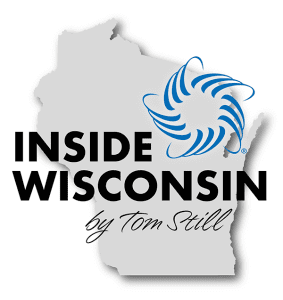By Tom Still
 MADISON, Wis. – Wisconsin’s Aug. 13 primary election will cull the list of candidates for Congress, the state Legislature and some county races, as well as decide the fate of two constitutional amendments that could change how – and even if – state government can distribute federal dollars.
MADISON, Wis. – Wisconsin’s Aug. 13 primary election will cull the list of candidates for Congress, the state Legislature and some county races, as well as decide the fate of two constitutional amendments that could change how – and even if – state government can distribute federal dollars.
While it’s important to know what those amendments would do, if passed, it’s also instructive to know what they would not do – especially when it comes to competitive, science-based grants that could boost the state’s economy.
Questions 1 and 2 on all primary ballots wound up there due to long-running disagreements between Democratic Gov. Tony Evers and the Republican-led Legislature over how federal pandemic relief dollars were spent. If the referenda pass, they would require the governor to get legislative approval to spend federal money in the future.
Many Republicans and think-tank groups such as the Wisconsin Institute for Law and Liberty and the Badger Institute are urging a “yes” vote as a check against gubernatorial power and simply sitting on excess dollars. Many Democrats and some liberal groups support a “no” vote because they believe the Legislature would slow state government responses to emergencies and generally add more red tape.
Unless some bright lawyer finds to the contrary, my own reading is that neither amendment would stand in the way of an important – and competitive – source of federal dollars in Wisconsin. That source is grants that don’t flow through state government but directly to researchers or groups working on specific projects.
Three such examples come to mind: In July, Wisconsin was named a “tech hub,” a process that began with the 2022 passage of the CHIPS and Science Act and which spurred a multi-state competition for federal dollars. The Economic Development Administration designated 12 such hubs, spread among sectors ranging from quantum computing to polymers to food technologies, with Wisconsin’s focus being personalized medicine.
In the works are proposals from two Wisconsin coalitions seeking federal money, also authorized by the CHIPS and Science Act, through the National Science Foundation.
Called “Regional Innovation Engine” grants, these are designed to lever science and technology innovation in specific areas of concern to the NSF, which in recent years has engaged more in market applications versus pure research.
One such proposal will come from the WiSys, a non-profit supporting organization of the Universities of Wisconsin. It is the technology transfer office for 11 public universities, meaning it protects the intellectual property of academic inventors and aims to move such discoveries into the marketplace. The WiSys proposal, which got a Phase 1 nod from NSF, seeks to make Wisconsin a global leader in sustainable agriculture and involves about 30 partners.
The second is being led by The Water Council, a Milwaukee non-profit that has organized a coalition of public and private researchers, major private companies and others interested in bringing cutting-edge, scalable solutions in water and energy efficiency to the market.
Dubbed “Water + Energy Forward,” the project would initially target food and beverage manufacturers, pulp and paper manufacturers and wastewater utilities. The goal is applying innovation that could make them more efficient and resilient in the face of challenges such as climate-based rules and regulation. It also won a Phase 1 award from the NSF and is seeking to bring home a larger federal grant, which would lever private and other dollars.
Competition is stiff nationwide, so there are no guarantees either Wisconsin proposal will make the cut. However, the strength of the coalitions in both cases demonstrate they can be put to work quickly.
An initial check with the Badger Institute and WILL suggest these kinds of competitive grant proposals are not what supporters of the referenda had in mind when language was drafted and put on the Aug. 13 ballot. Let’s hope that is the case, because the process of competing for science, tech and economic development dollars is hard enough as it is.
Still is president of the Wisconsin Technology Council. He can be reached at news@wisconsintechnologycouncil.com.


